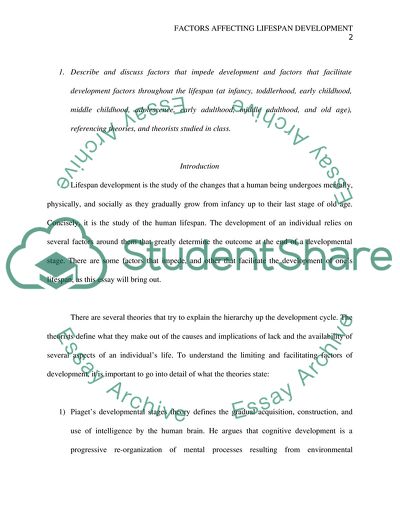Cite this document
(Development and Factors that Facilitate Development Factors throughout the Lifespan Assignment Example | Topics and Well Written Essays - 3250 words, n.d.)
Development and Factors that Facilitate Development Factors throughout the Lifespan Assignment Example | Topics and Well Written Essays - 3250 words. https://studentshare.org/education/1804314-life-span-development
Development and Factors that Facilitate Development Factors throughout the Lifespan Assignment Example | Topics and Well Written Essays - 3250 words. https://studentshare.org/education/1804314-life-span-development
(Development and Factors That Facilitate Development Factors Throughout the Lifespan Assignment Example | Topics and Well Written Essays - 3250 Words)
Development and Factors That Facilitate Development Factors Throughout the Lifespan Assignment Example | Topics and Well Written Essays - 3250 Words. https://studentshare.org/education/1804314-life-span-development.
Development and Factors That Facilitate Development Factors Throughout the Lifespan Assignment Example | Topics and Well Written Essays - 3250 Words. https://studentshare.org/education/1804314-life-span-development.
“Development and Factors That Facilitate Development Factors Throughout the Lifespan Assignment Example | Topics and Well Written Essays - 3250 Words”. https://studentshare.org/education/1804314-life-span-development.


